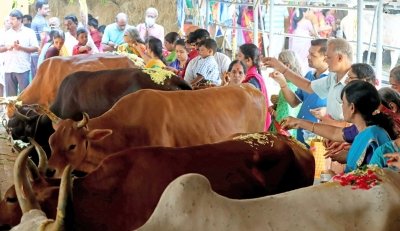The Indian government has announced significant GST reforms aimed at supporting the cooperative sector, farmers, and rural businesses. These changes are set to boost local industries, make products more affordable, and help increase income for millions of farmers and small producers across the country.
Big reductions in Goods and Services Tax (GST) will directly benefit cooperatives in agriculture, dairy, and food processing. More than 10 crore dairy farmers, in particular, will see positive impacts, with lower taxes on many dairy products like milk, paneer, butter, and ghee. For example, GST on milk cans made of iron, steel, or aluminum has dropped from 12% to just 5%, making dairy farming more profitable.
In the food sector, taxes on popular items like cheese, snacks (namkeens), butter, pasta, jams, jellies, fruit drinks, chocolates, ice cream, cakes, biscuits, and coffee have all been cut from 12-18% down to 5%. This will make household food costs lower, increase demand in rural and semi-urban markets, and give a boost to food processing industries and cooperatives.
Packaging materials such as paper, cases, and crates also now have a reduced GST of 5%, helping cooperatives cut costs on logistics and packaging.
Agriculture equipment has become more affordable too. GST on tractors under 1,800 cc has been lowered to 5%, benefiting farmers who need equipment for plowing, fodder transportation, and farm management. Components like tyres, tubes, and hydraulic parts also saw GST cut from 18% to 5%, reducing overall costs for farmers and cooperatives.
Fertilizer prices will also see relief. GST on key inputs like ammonia, sulphuric acid, and nitric acid has dropped from 18% to 5%, making fertilizers cheaper and ensuring farmers get timely supplies during planting season. Similarly, bio-pesticides and micronutrients have been reduced from 12% to 5%, encouraging eco-friendly farming methods and benefiting small organic farmers.
Logistics costs are expected to decrease as GST on goods vehicles like trucks and delivery vans has been cut from 28% to 18%. This lower tax helps reduce transportation costs for farmers and food producers, ultimately making agricultural exports more competitive.
Overall, these GST revisions are designed to support rural entrepreneurs, promote sustainable farming, and strengthen cooperatives across India. By lowering taxes on essential goods, farm inputs, and transportation, the government aims to boost the economy of rural areas, improve farmer incomes, and promote the growth of food and dairy industries.



